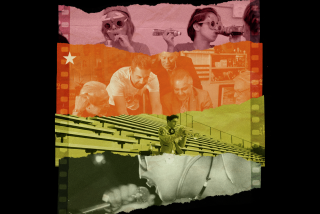For one Chicana rocker and memoirist, music is activism, and a way of life
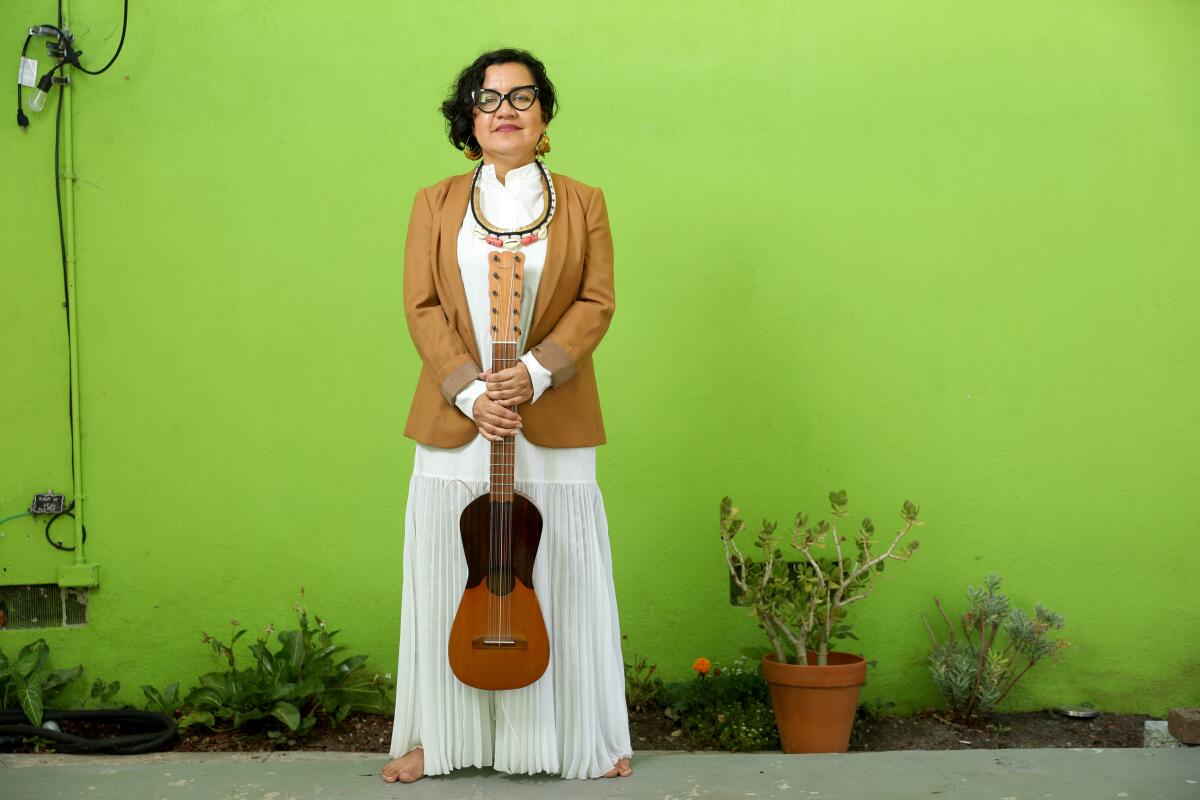
- Share via
You might think winning a Grammy might be an artist’s dream. For Martha Gonzalez, the 48-year-old singer of Quetzal, the reality is much more rewarding.
“Although we were grateful for the recognition, [it] was like having Santa Claus come to your home when you don’t necessarily believe in him anymore,” she writes in her new book, “Chican@ Artivistas: Music, Community, and Transborder Tactics in East Los Angeles.” “The idea of Santa Claus is still nice to think about, but the sentiment had been somewhat demystified.”
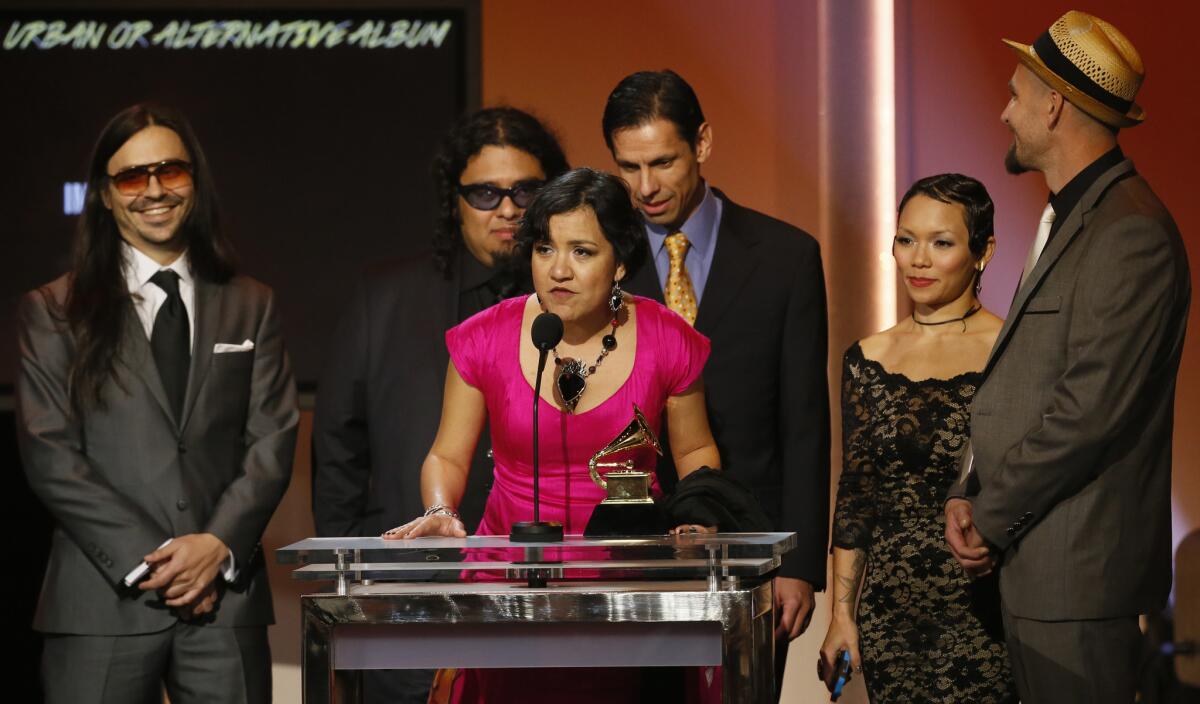
For more than 20 years, the Chicano rock band has done it their way — rejecting sponsorship money from tobacco or alcohol companies (a choice Gonzalez refers to in the book as “professional suicide”) and using what she calls “participatory community art practices.” It’s not uncommon for the band to invite neighbors to workshops to co-write songs.
Ever since Quetzal formed in the wake of L.A.’s civil unrest in 1992 (Gonzalez joined in 1995), it has operated with the conviction that art and activism cannot be separated. Gonzalez’s book details some of those lessons, whether learned here at home, “in the trenches,” or in places like Veracruz, Mexico, where the band joined fandangos — fiestas guided by song, poetry, dance and music.
Part academic treatise (Gonzalez is an associate professor at Scripps College) and part testimonio, the book seamlessly weaves together Chicana feminist theory, ethnomusicology and Gonzalez’s intimate experiences. In the process, it offers a glimpse into the vibrant art scene of 1990s East L.A. and the development of a Chicana artivist.
Quetzal never showed up to the pre-Grammy gala. Instead, they did the most Quetzal thing ever: They opened the doors to the Breed Street Shul in Boyle Heights, invited every band from East L.A. that had ever been nominated for a Grammy and threw a concert. Who needs a Grammy when you have community?
Gonzalez spoke to the Times about her story and her book, in a conversation edited for clarity.
What do you hope readers get out of the book?
I hope that I get people to think about music in new ways. That music isn’t just a commodity. We buy it or we sell it as professionals, but we also reconnect with our creative selves in a way that’s free of ties to capital. We need to find ways of being in community with music and doing music as community. We’re not just labor producers, you know?
What can we learn today from ’90s East L.A. Chicano activism?
We know from the ’60s and ’70s that the marches, artwork and music were pivotal instruments to humanizing our struggle. There was also a lot of burnout. A lot of selling out, just kind of giving up in some ways, becoming jaded about what kind of change can really happen. And I think that is totally understandable. It’s difficult to be in resistance your entire adult life. We need to go beyond resistance, as Quetzal Flores [band founder and Gonzalez’s partner] has often said. We have to build a social and cultural infrastructure where the things that we do also are giving us life — not just taking energy from us. As we can see, we’re gonna be in this for the long haul.
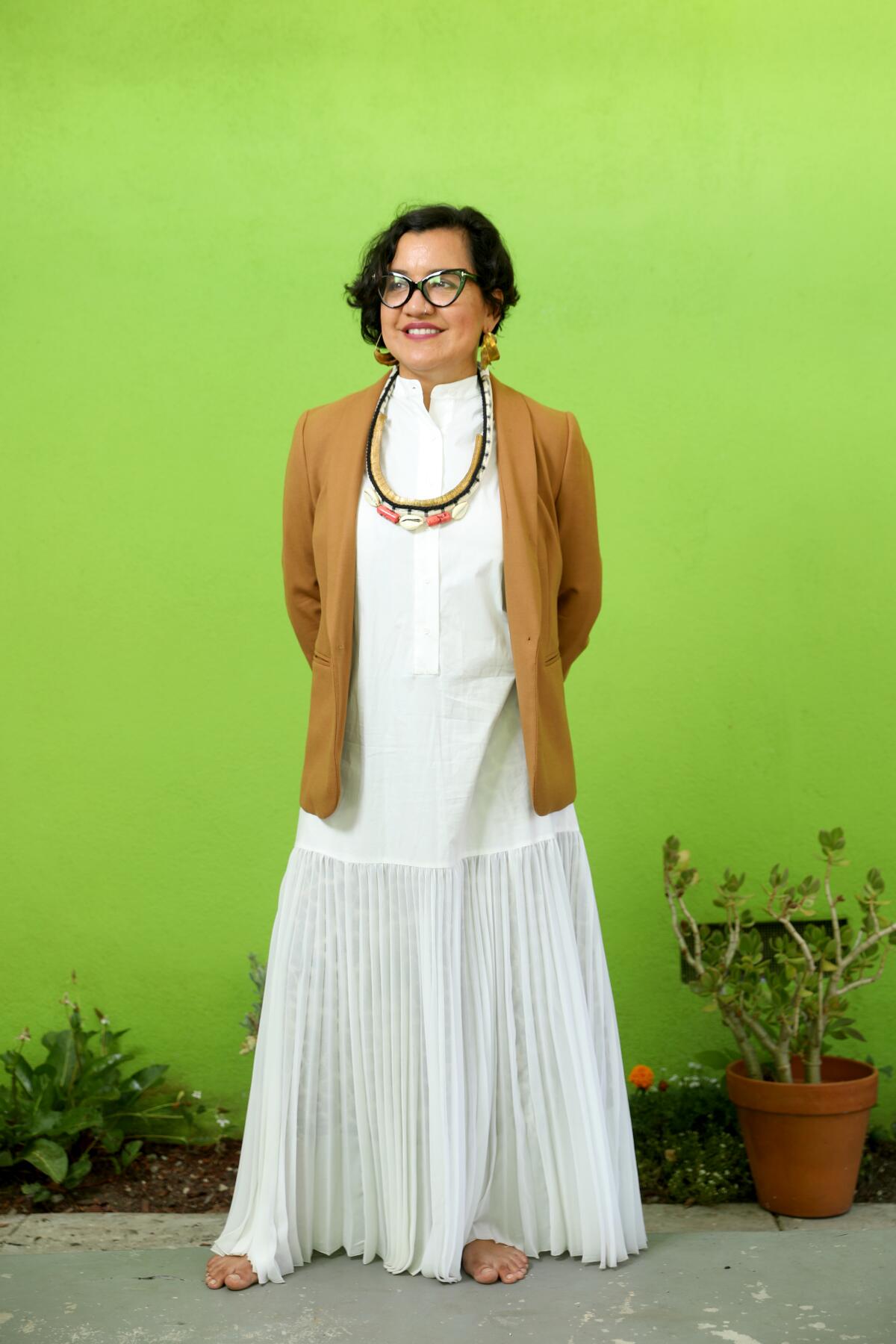
You write that “Fandango becomes the perfect tool to form and maintain community.” How does it do that?
Somebody can have a [fandango] in their home. They can have it even at a park. They can say, “Va ver fandango aqui, que corra la voz.” “Tell everybody.” And so everybody basically shares the area and then we all show up. It’s ephemeral, right? And you can re-create this in any space. Y eso es bien bonito, especially when we think about how space here and in our communities is going extinct with gentrification. [You] practice fandango in one space and it closes down — but that’s OK, the moments that you were together, you created a sense of community.
You write about the importance of physical spaces in your development as an artivist: Self Help Graphics in East L.A., Centro Regeneración in Highland Park, Troy Cafe in Little Tokyo. Most of those places are gone.
I think we always need spaces to gather, but it’s also the cultural work that needs to be done, creating culture so that even if the space disappears, we can migrate to another space and we pick up where we left off because we worked on the culture mechanisms. I think that’s the most important thing we can learn from having these spaces and then losing them. The work and the culture we created continues to thrive.
Your father’s life was music. He wanted to be a professional musician and that didn’t happen for him. There is a complicated relationship between family and music. Music brought you together and seems to have pulled you apart. You write that he grew abusive, and eventually left the family and became homeless. How did that shape you?
I learned a lot. Sometimes I learned things that probably a child shouldn’t learn so early on, you know? I saw the deep rich history and la musica ranchera, and the amazing singers that we came across as children. But I also saw a lot of alcoholism and misogyny, a lot of those things that aren’t our best sides. But even within that, I saw a lot of really strong female singers that could hold their own as well.
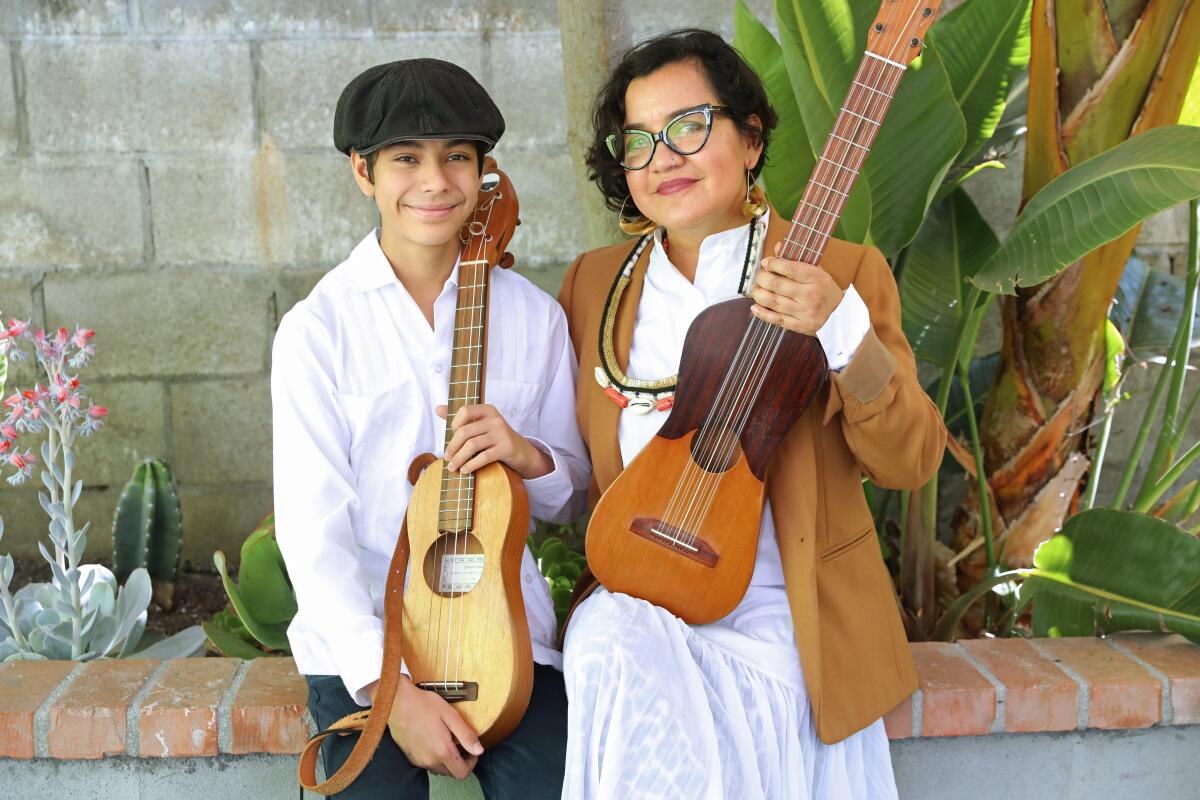
When I was younger, I really hated ranchero music because it reminded me of my dad. I think that had he experienced fandango, he would have been a happy man. Had we been able to deconstruct for him what music really should mean rather than what the industry has fed us or what capitalism has led us to believe, I think that perhaps that could have fulfilled him in some way where the industry could not.
What comes full circle for me is how my son understands music now. It’s totally different than what we did. He is a prolific musician now. He can play piano, flute, requinto jarocho. But then also he participates in fandango in a way that he was born in it, like he understands the value and the ethics of it. And he honors them both equally. Le encanta fandanguiar.
More to Read
Sign up for our Book Club newsletter
Get the latest news, events and more from the Los Angeles Times Book Club, and help us get L.A. reading and talking.
You may occasionally receive promotional content from the Los Angeles Times.



